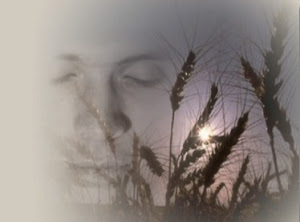"This, then, is how you should pray: 'Our Father in heaven, hallowed be your name, your kingdom come, your will be done on earth as it is in heaven. Give us today our daily bread. Forgive us our debts, as we also have forgiven our debtors. And lead us not into temptation, but deliver us from the evil one. For yours is the kingdom and the power and the glory forever. Amen.' " —Matthew 6:9–15 (NIV)
Thy Kingdom Come:
In our thoughts on the Lord's Prayer. we are inclined to pass over the words, Thy kingdom come. The words seem to us to refer either to life beyond the grave, or to the age-old hope of the prophets and the religious for the day when God's kingdom shall be set up on earth and swords shall be beaten into plowshares.
But the Lord's Prayer is essentially a prayer for our daily needs, one through which we strive to place ourselves within the sphere of God's works. While the world at large still does not conduct itself as the Kingdom of God, the Kingdom exists today for all those who will turn to it.
For those of us who have found our lives unmanageable, the Kingdom of God is our sure refuge. By acknowledging ourselves as the subjects of a Power greater than our own, as obedient to the laws of life that have grown out of the experience of mankind throughout the ages, we can restore ourselves. We place ourselves in the Kingdom of God within us.
What is the Kingdom of God? The Apostle Paul said it is not meat or drink.
That means it is not the material side of lift. Those whose interests lie alone in bread, in wealth , in the comforts of life, do not find the Kingdom of God. They are more likely to find themselves victims of lust and greet, to find themselves selfish and intolerant, to find themselves where we found ourselves as the result of our one-sided interest in material things.
The Kingdom of God, said Paul, is righteousness and peace and joy in the Holy Spirit.
Some of us shy away from words like "righteousness," which have a "goody-goodv" sound. But what is a righteous man but one who is upright and honest and fair and free from the will to do wrong.
The Kingdom of God. we might say, is the realm of honesty and unselfishness and purity and love, the four principles that guide our efforts to remake our lives. Some of our members call them the Four Absolutes.
The Kingdom of God is peace: the peace from the tortures of the mind and the flesh that we have suffered so many years. With honesty and unselfishness and purity and love, by being upright and fair and free from the will to do wrong, by casting from us the errors that have troubled us, we can relax and find peace in the Kingdom of God.
The Kingdom of God is joy in the Holy Spirit. Perhaps Paul meant to suggest that it is the joy that comes to us through acceptance of the Holy Spirit. And so it is. But many of us, who have spent so many years in error and have been inclined to look with contempt upon those persons who followed the way of God, tend to keep the Holy Spirit at arm's length. Many are inclined to think that it is not quite "grown up" to find joy in the Holy Spirit. Thus we persist in error, and deprive ourselves of the opportunity to find peace. We have to let ourselves find joy in the Holy Spirit.
It is well to recall the first three of the Twelve Steps. We confessed that we were powerless over alcohol and that our lives had become unmanageable. We decided that a Power greater than our own could restore us to sanity. We undertook to place our lives and our wills in the hands of that Power.
So now we acknowledge the Supreme Power, "Our Father." We regard that Power reverently. And we ask that we live today in the realm of that Power, when we are upright, where we find peace, where we find joy in the Holy Spirit. Thy Kingdom come.
[* Reprinted from a series of eight editorial articles written in 1944 and first published in the Cleveland Central Bulletin an Alcoholics Anonymous newsletter.]

Wednesday, July 2, 2008
Subscribe to:
Post Comments (Atom)
No comments:
Post a Comment